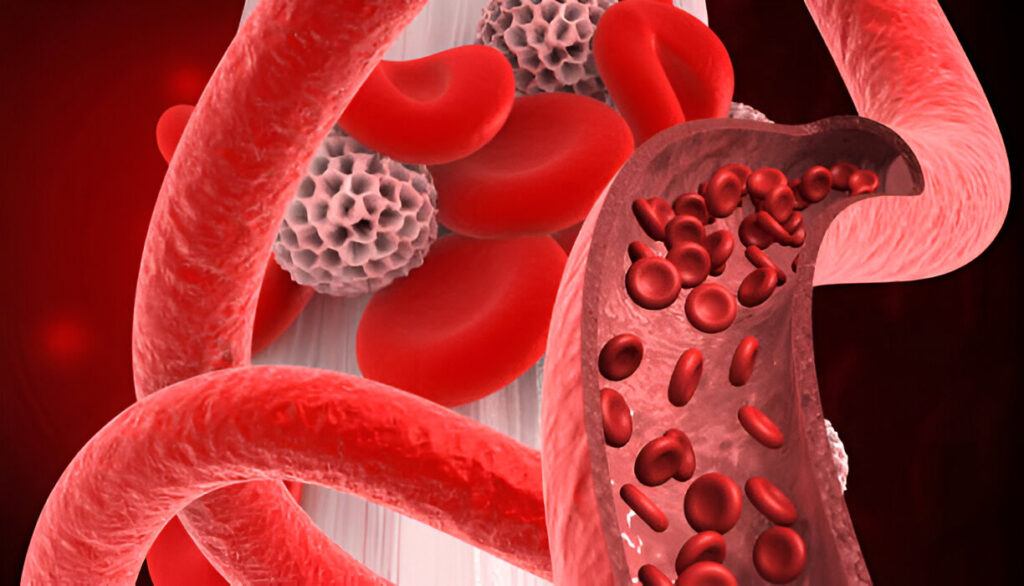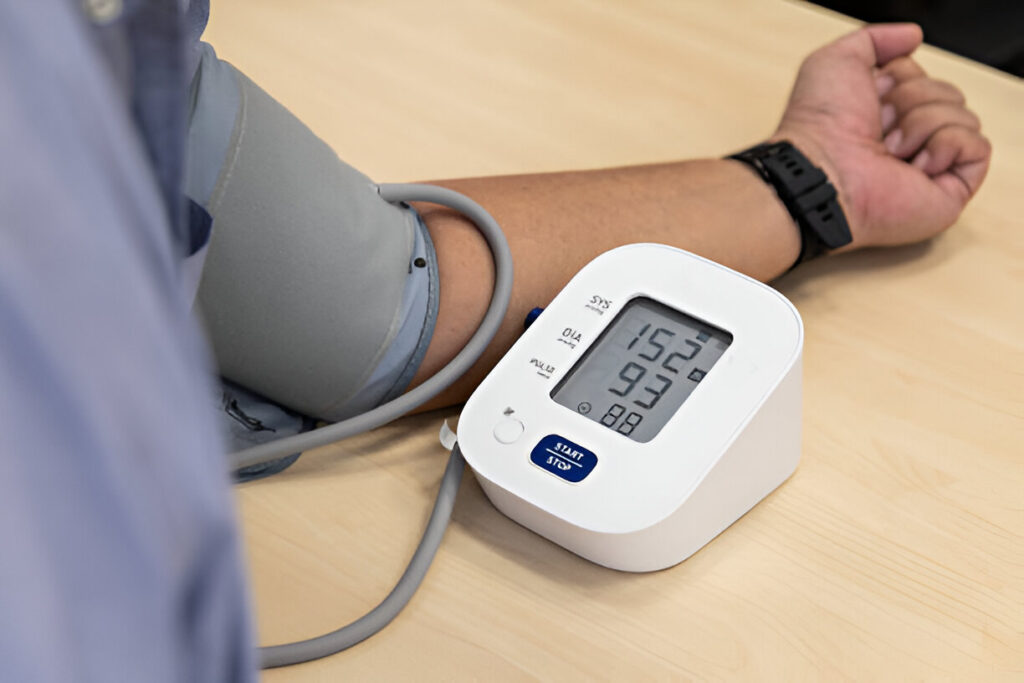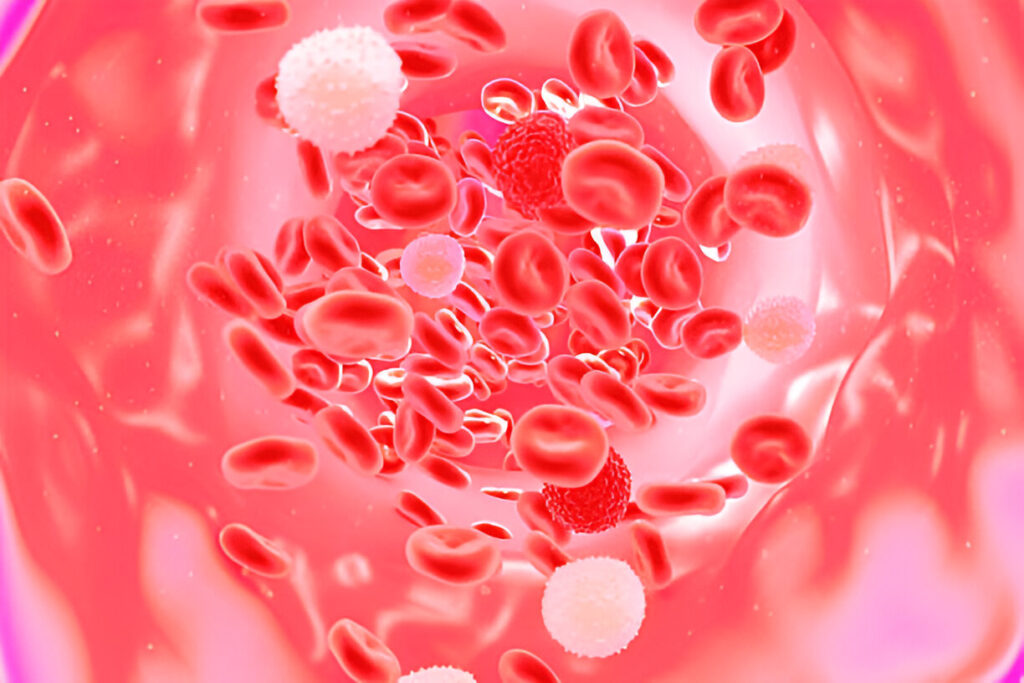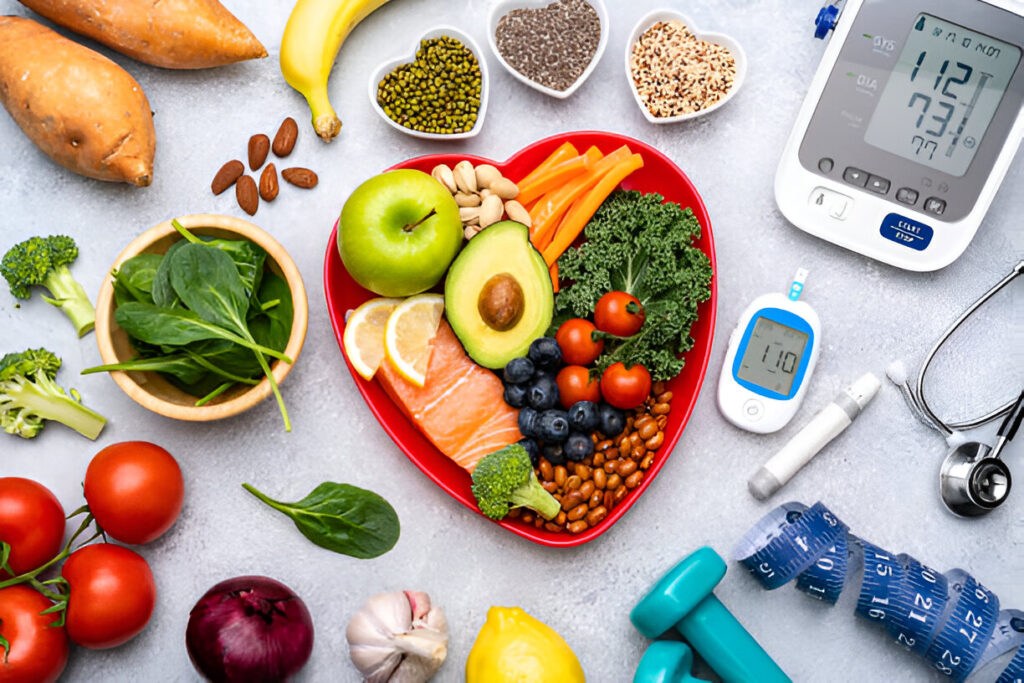High blood pressure is a common severe health issue that develops continuously when blood pressure remains excessively high against artery walls. Individuals usually develop this condition throughout numerous years before it ends in heart disease, stroke, or kidney damage alongside other possible fatal conditions unless applicable medical treatment begins.
Hypertension is the medical word used to describe elevated blood pressure. Although this condition manifests with no apparent signs, leading people to label it as a “silent killer.” Most people discover hypertension only through medical complications that emerge when a high blood pressure condition exists.

Getting older, running in the family, not exercising enough, eating poorly, drinking too much alcohol, and having severe stress levels are the key risk factors for developing high blood pressure.
High blood pressure needs treatment, including monitoring lifestyle through balanced eating, salt reduction, and exercise while following healthcare professional-recommended medications.
Early detection and proper interventions through routine checks substantially reduce serious health problems linked to high blood pressure.
1. Unhealthy Diet The Silent Trigger Behind Hypertension
The Rise of Hypertension
Hypertension, also known as high blood pressure, is often referred to as the “silent killer” because it typically shows no obvious symptoms until it’s too late. It affects millions of individuals worldwide, silently increasing the risk of severe health complications such as heart disease, strokes, and kidney damage.
One of the most significant, yet often overlooked, contributors to the growing epidemic of hypertension is an unhealthy diet. This modern-day dietary pattern is leading to more cases of high blood pressure and putting people’s long-term health at risk.
Diet’s Impact on Blood Pressure
An unhealthy diet plays a crucial role in the development of hypertension. The foods we eat directly affect the health of our blood vessels, heart, and overall circulatory system.
A diet high in sodium, unhealthy fats, and processed sugars can increase the risk of elevated blood pressure.
When consumed in excess, these components cause the body to retain more water, which can strain the heart and blood vessels, ultimately leading to hypertension.
On the other hand, a balanced diet rich in fruits, vegetables, and whole grains can support heart health and help maintain normal blood pressure levels.
Excessive Salt Consumption
One of the most significant dietary contributors to hypertension is excessive salt intake. Salt, particularly in the form of sodium, is known to increase fluid retention in the body.
This increases blood volume, which places added pressure on blood vessel walls, resulting in higher blood pressure.
Many processed foods, fast food items, and restaurant meals are loaded with salt, making it easy for individuals to unknowingly consume more than the recommended daily amount.
Even small, seemingly harmless snacks can be packed with hidden sodium, contributing to the rise of hypertension in people who have little awareness of their dietary choices.
The Role of Sugar
Sugar, particularly refined sugars, is another silent culprit when it comes to hypertension. Studies have shown that a diet high in sugary foods and beverages can lead to insulin resistance, which in turn contributes to high blood pressure.
High sugar consumption also encourages weight gain and fat accumulation, especially around the abdominal area. This type of fat, often referred to as visceral fat, has been linked to a higher risk of hypertension.
Additionally, sugary drinks, such as sodas and energy drinks, are often packed with hidden sugars that contribute to both obesity and high blood pressure.
Unhealthy Fats and Hypertension
The consumption of unhealthy fats, particularly trans fats and saturated fats, is another key factor in the development of hypertension. These fats are commonly found in processed foods, fast food, and baked goods. They contribute to the buildup of plaque in the arteries, leading to atherosclerosis.
Atherosclerosis, the hardening and narrowing of the arteries, makes it more difficult for blood to flow freely, which in turn raises blood pressure. By replacing unhealthy fats with healthy fats from sources like avocados, nuts, seeds, and fish, individuals can help protect their cardiovascular health and reduce their risk of hypertension.
Weight and Hypertension
An unhealthy diet often leads to weight gain, which is another major risk factor for developing hypertension. Excess weight, particularly in the form of visceral fat, places additional strain on the heart and circulatory system.
The more body fat an individual has, the harder the heart has to work to pump blood, which can lead to an increase in blood pressure.
Over time, this added strain can damage the arteries and result in chronic hypertension. Maintaining a healthy weight through a balanced diet and regular physical activity is one of the most effective ways to prevent and manage high blood pressure.
The Hidden Dangers of Processed Foods
Processed foods are notorious for their high sodium, unhealthy fats, and refined sugars. These foods, which are often convenient and inexpensive, have become staples in many people’s diets. However, they come at a cost to one’s health.
The excessive amounts of sodium, unhealthy fats, and sugars found in processed foods can lead to weight gain and the development of hypertension.
Many individuals may not even realize the amount of sodium or sugar they are consuming due to the widespread use of these ingredients in packaged snacks, fast food, and even seemingly healthy options like granola bars.
It’s important to read food labels carefully and limit the intake of processed foods to maintain optimal blood pressure levels.
A Lack of Nutrients
An unhealthy diet also means that the body is not getting the nutrients it needs to function properly. Essential vitamins and minerals such as potassium, magnesium, and calcium play vital roles in regulating blood pressure. A diet that lacks these nutrients can lead to imbalances in the body that contribute to hypertension.
For example, potassium helps balance the effects of sodium in the body, while magnesium and calcium are essential for healthy blood vessel function. By consuming a variety of whole foods, including fruits, vegetables, and lean proteins, individuals can ensure they are getting the nutrients they need to keep their blood pressure in check.
The Importance of Hydration
While many people focus on the foods they eat, hydration is another key factor in preventing hypertension. Dehydration can thicken the blood, making it more difficult for the heart to pump blood efficiently.
This can lead to an increase in blood pressure. Drinking enough water throughout the day ensures that the body stays properly hydrated and helps support healthy blood circulation.
In addition, replacing sugary beverages like sodas and energy drinks with water can significantly reduce the risk of high blood pressure and other health complications.

The Link Between Stress and Diet
Stress and diet often coexist when it comes to hypertension. Many individuals turn to unhealthy comfort foods when they are stressed, leading to overeating and the consumption of high-sodium, high-sugar, and high-fat foods.
This can create a vicious cycle, where stress leads to poor dietary choices, which in turn can raise blood pressure. Managing stress through techniques such as mindfulness, meditation, and regular exercise can help break this cycle and reduce the risk of hypertension.
Improving Your Diet for Better Health
The good news is that hypertension is largely preventable through lifestyle changes, particularly by adopting a healthier diet. By making small adjustments, such as reducing salt intake, cutting back on processed foods, and choosing healthier fats, individuals can significantly reduce their risk of developing high blood pressure.
Additionally, incorporating more fruits, vegetables, and whole grains into the diet provides essential nutrients that support heart health and proper blood pressure regulation. Regular physical activity, combined with a balanced diet, can be one of the most effective ways to maintain healthy blood pressure levels and protect against hypertension.
Finding
An unhealthy diet is a silent trigger behind the rising rates of hypertension across the globe. The excessive consumption of sodium, unhealthy fats, sugars, and processed foods places significant strain on the cardiovascular system and can lead to long-term health complications.
However, by making healthier dietary choices, individuals can take control of their health and significantly reduce their risk of developing high blood pressure. A balanced diet, combined with regular physical activity and stress management, is the key to preventing and managing hypertension. Start today, and your heart will thank you tomorrow.
2. Lack of Exercise How Inactivity Increases Your Risk
The Rise of High Blood Pressure
High blood pressure exists as both the increased risk of high blood pressure. a medical term called hypertension and the silent killer label since most people only develop noticeable symptoms when it becomes advanced.
High blood pressure exists among millions of global residents while increasing their odds of developing major health issues, including heart disease, strokes, and renal damage.
Kidney damage. A lousy diet stands as the most important yet most ignored factor behind the rising hypertension epidemic. People experience compromised long-term wellness due to this contemporary dietary style, which produces elevated blood pressure.

Diet’s Impact on Blood Pressure
The development of hypertension heavily depends on eating patterns that harm health. Food consumption controls the health status of our bloodstream vessels, heart system, and total circulatory profile.
Consuming foods high in sodium and destructive fat content, along with processed sugars, elevates the chances of blood pressure elevation.
The human body retains additional water from excessive exposure to these dietary components, which strains the heart and blood vessels until hypertension develops.
People who maintain a healthy diet, including vegetables, fruits, and whole grains, achieve better heart health and regularly controlled blood pressure.
Excessive Salt Consumption
High salt consumption is essential as a dietary cause of high blood pressure. Balanced amounts of salt and sodium in the body can result in fluid build-up. Higher blood volume causes additional stress on blood vessel walls, producing elevated blood pressure readings.
Traditional foods that undergo processes plus fast food products from restaurants contain elevated salt levels, which enable the unintentional excessive daily receded sodium intake.
Many ordinary food snacks in daily life contain hidden salt, which contributes to the growing number of people developing hypertension because they do not realize their dietary choices.
The Role of Sugar
Refined sugars, together with sugar, represent a hidden cause of hypertension development. Medical research indicates that excessive intake of sugary food products as well as sweet beverages can develop insulin resistance that results in high blood pressure.
Excessive sugar intake creates weight gain while building up fat tissue that mainly accumulates in the abdominal regions.
Medical studies establish that visceral fat promotes elevated blood pressure because of its association with hypertension risks. Several kinds of sugary beverages, including sodas and energy drinks, contain concealed sugars that cause body weight problems and high blood pressure.
Unhealthy fats and hypertension
The mixture of trans and saturated fats with unhealthy diet components is a primary cause of hypertension. Improperly processed foods, fast food establishments, and bakeries use unhealthy fats in their ingredients.
Because of these fats, plaque accumulates inside arteries, leading to atherosclerosis. The heart challenges maintaining normal blood flow due to artery hardening or constriction, naturally raising blood pressure.
Weight and hypertension
Poor eating choices often lead to weight gain, which establishes itself as a primary risk factor for hypertension. Extra weight in the body, particularly visceral fat, puts pressure on the heart and circulatory system.
Body fat levels determine how hard a heart must work for blood circulation, ultimately affecting blood pressure results.
The constant increased work on arteries leads to permanent hypertension development. The most straightforward way to avoid and regulate hypertension involves achieving and sustaining a desirable weight through dietary balance and physical exercise.
The Hidden Dangers of Processed Foods
Processed foods contain excessive sodium content with unhealthy fats along with processed sugars, which have gained notoriety in the food world. The key food items that provide cheap and quick meal solutions have shifted into becoming diet essentials throughout society.
However, they hurt one’s health. Consuming too much sodium, with bad fats and processed carbohydrates in packaged foods, causes weight gain and high blood pressure.
Many people do not recognize their sodium and sugar consumption because these substances exist in packaged snacks, fast food establishments, and even in healthy products like granola bars.
Reading food labels carefully and limiting your consumption of processed foods helps you preserve appropriate blood pressure levels.

A Lack of Nutrients
An improper diet suggests the body lacks the essential nutrients necessary to perform correctly. The blood pressure management system relies on critical combinations of three minerals: potassium, magnesium, and calcium.
Hypertension might develop due to lacking particular nutrients in the diet, creating body imbalances.
Potassium works together with sodium, but blood vessels need magnesium and calcium to function correctly. A consumption pattern of whole foods, including vegetables, fruits, and lean proteins, guarantees people all the necessary nutrients to maintain normal blood pressure.
The Importance of Hydration
Even though most people concentrate on their food intake, water is essential in hypertension prevention. Blood pressure elevation happens when blood becomes thick during dehydration when heart pumping becomes less effective.
A person must maintain daily water intake to hydrate correctly and support healthy blood circulation patterns. Drinking only water instead of sugary drinks such as sodas and energy drinks significantly lessens the risk of acquiring high blood pressure and related health problems.
The Link Between Stress and Diet
Multiple medical studies link hypertension with both stress and improper eating. People usually resort to unhealthy comfort foods under stressful situations and then consume large amounts of dietary items high in sugar, sodium, and fat.
Our body enters a continuous pattern of stress-induced unhealthy food choices that eventually create hypertension.
The combination of stress management strategies, including mindfulness alongside meditation and physical exercise, functions as a method to interrupt the hypertension cycle while decreasing its risk factors.
Better health results from dietary improvements
Better dietary habits are the primary method of preventing the development of hypertension. Reducing daily salt consumption, processing food restrictions, and healthy fat consumption allow people to substantially decrease their hypertension risk.
Introducing fruits, vegetables, and whole grains to your food selection enables your body to obtain essential nutrients that protect your heart and control your blood pressure.
Annual physical exercise combined with proper nutritional choices is a compelling blood pressure control and hypertension prevention method.
A nutshell
Large-scale hypertension cases are advancing because people follow poor dietary patterns. Eating large amounts of sodium with bad fats, processed meals, and excessive sugar causes continuous stress on the heart system, which leads to serious future health complications.
The main path to protecting your health is eating nutritious meals, substantially reducing your chances of developing hypertension. Hypertension prevention and control requires regular exercise, stress management, and a proper diet. The effort you begin today will produce gratitude from your heart for tomorrow.
3. Genetics & Stress The Hidden Factors You Can’t Ignore
Understanding Stress and Genetics
Life presents natural stress, which affects human health differently between individuals. The influence of lifestyle factors, environmental conditions, and daily routines cannot fully explain stress levels since genetic elements frequently get overlooked.
Our genetic makeup determines how humans respond to stress because it controls all physical and emotional stress-related effects in our bodies.
Genetics form a complicated link with stress because inherited traits heighten particular people’s sensitivity to the detrimental outcomes of stress. Still, other people naturally demonstrate more muscular endurance against stress-related issues.

The Genetic Blueprint of Stress
The biological information in our DNA strongly determines how we react to stressful situations. Some genes regulate the production of hormones, including cortisol, that control our body’s stress response mechanism.
Individuals name cortisol the “stress hormone” because the substance supports the body during challenging situations.
The extent to which individuals produce cortisol under stress depends on their natural levels during mental tension. The time someone needs to recover from stress and their reaction speed to stressful situations depends on their inherited variations.
Certain people experience increased reactions to stressful events through genetic variability, but others do not show the same degree of physiological stress response.
The Role of the Brain
Genetic elements influence how the brain responds to stress by establishing this process in the central center of the body. Stress regulation depends heavily on the amygdala because this brain region assists in processing threats.
According to science-based research, the amygdala shows reaction differences to stressors depending on genetic variations.
The strength of amygdala reactions differs between people, generating variable levels of anxiety and fear. Some people possess an amygdala structure, which produces minimal responses to stressful situations; therefore, they maintain composure during stressful events.
The variations in our genes provide a scientific explanation for why specific individuals have increased risk factors for developing stress-related health conditions along with anxiety disorders.
Inherited Risk Factors
Personal DNA makeup increases the probability that someone will develop stress-related health conditions like depression, anxiety, and post-traumatic stress disorder (PTSD). People obtain their genetic risk for particular medical conditions from their hereditary background.
People who come from families where relatives display mental health problems from stress tend to develop similar health issues themselves. Genetic risk factors create a biological map of how stress will affect us, but they do not determine whether we will experience these health conditions.
Coping Mechanisms and Genes
Differences in stress management strategies exist between individuals, and genetics affect how people handle stressful situations. People differ in their ability to cope with stress due to natural variations, which determine their short-term recovery from challenging circumstances.
Genetics regulate how the brain processes emotions and stress, shaping how someone manages demanding situations. Stress management mechanisms cover everything from our mental interpretation of stressful experiences to our strategic methods for handling them.
Some genetic variations create conditions where people form inappropriate ways to cope with stress, which worsens their ability to manage their problems.
The Impact on Mental Health
Genetic predisposition, together with environmental factors, produces most mental health disorders. Personality traits that run in families may create risk factors for stress-related impacts on mental health among individuals with biological vulnerabilities to depression or anxiety.
The natural body’s responses to stress exacerbate these health issues, making life more difficult for those who suffer from them. People with specific genetic features have distinct brain-level reactions to stress, which affects their ability to cope with emotions and mood fluctuations.
Body chemistry determines how some people respond to stress since certain genetic factors influence how serotonin and dopamine manage moods. Genetic variations become obstacles for regulating emotions when stress occurs, so brain functions deteriorate for developing or advancing mental health illnesses.
Chronic Stress and Physical Health
The awareness about genetic factors affecting stress primarily deals with mental conditions, yet anxiety produces critical physical consequences. When genetic makeups pair with continuous stressful situations, they produce sustained damage to body systems.
Persistent stress increases blood pressure levels and weakens immunity functions, as well as raising inflammation markers that create risk factors for cardiac disease and diabetes as well as autoimmune conditions.
Genetic profiles between individuals determine their capacity to deal with stress-induced physical impacts. Genetic backgrounds determine individual vulnerability to developing health conditions because certain people have inflammatory issues, cardiovascular difficulties, and other stress-induced risks.

The Role of Resilience
Genetics influence our stress responses but do not determine our ultimate destiny regarding stress management. One can develop resilience through time, which stands for recovering from difficult situations.
The results of biomedical research proved that some persons inherit heightened stress responses, yet anyone can enhance their stress tolerance through beneficial wellness practices.
People with genetic stress susceptibility can reduce its impact through regular physical exercise, balanced nutrition, mental awareness, and emotional attention.
People who learn stress management techniques develop better coping mechanisms to achieve emotional strength as their lives become less negatively affected by stress.
Environmental Factors Matter
Genetics prove essential to our stress levels, but our environments directly decide our stress reactions. The impact stress has on mental as well as physical health emerges directly from a combination of life circumstances along with a child’s experiences of traumatic events and social support networks.
Having genes predisposing someone to stress-related conditions does not have to result in serious problems because building supportive environmental conditions combined with stress management techniques can control these genetic elements.
People who lead a healthy lifestyle that includes exercise, good nutrition, and relaxation practices create a protective shield against stress, balancing hereditary sensitivity factors.
Genes, Stress, and Aging
Old age brings changes to our capacity for stress management. With advancing age, the influence of genes on our stress response tends to amplify its effects. The brain cells degrade prematurely because of constant stress, which produces cognitive decline, weakens memory function, and weakens immunity.
There exist individuals with inherited risk factors for stress-related health issues who should anticipate enhanced vulnerability to stress-related effects when growing older. Research demonstrates that mastering stress management methods aids healthy aging regardless of genetic factors in an individual.
The early creation of stress management techniques allows people to minimize stress’s lasting effects on their bodies and minds.
Future Research and Understanding
Research about the genetic stress connection remains under investigation, yet scientists are actively investigating particular genes responsible for stress reactions.
Scientific studies of gene-stress interactions enable researchers to establish individualized stress management solutions that redefine mental healthcare methods.
Research findings about genetic stress sensitivity factors will help scientists develop interventions that specifically address these factors to reduce stress-related health problems.
Research into genetic influences and stress will provide better methods to assist people in managing their stress through individualized approaches.
How to reduce high blood pressure
To lower high blood pressure, be sure to eat healthy foods, which incorporate lots of fruits, vegetables, and whole grain foods. Even mild forms of exercise, like swimming or walking, might be beneficial.
Step one is salt reduction, step two is moderate alcohol, and step three is stress management relaxation techniques such as deep breathing are recommended. Consult a doctor for personalized advice.
Conclusion
Genetics defines how people experience stress through two principal impacts stress-related body responses and emotional coping abilities. Our genes create opportunities for stress-related medical conditions but do not determine the final outcome.
Learning about genetic stress factors will enable us to handle stress more effectively with stress damage reduction methods.
Our understanding of inherited genetic components and careful implementation of lifestyle adjustments with coping strategies enables us to govern stress-related life effects, producing enhanced physical and mental health outcomes.
<script type="application/ld+json">
{
"@context": "https://schema.org",
"@type": "Article",
"mainEntityOfPage": {
"@type": "WebPage",
"@id": "https://skyhealthnews.com/high-blood-pressure/"
},
"headline": "High blood pressure",
"description": "High blood pressure is a common severe health issue that develops continuously when blood pressure remains excessively high against artery walls.",
"image": "https://skyhealthnews.com/wp-content/uploads/2025/02/high-blood-pressure-1024x683.jpg",
"author": {
"@type": "Person",
"name": "Farhad",
"url": "https://skyhealthnews.com/author/farhad"
},
"publisher": {
"@type": "Organization",
"name": "",
"logo": {
"@type": "ImageObject",
"url": ""
}
},
"datePublished": "2025-02-01"
}
</script>









